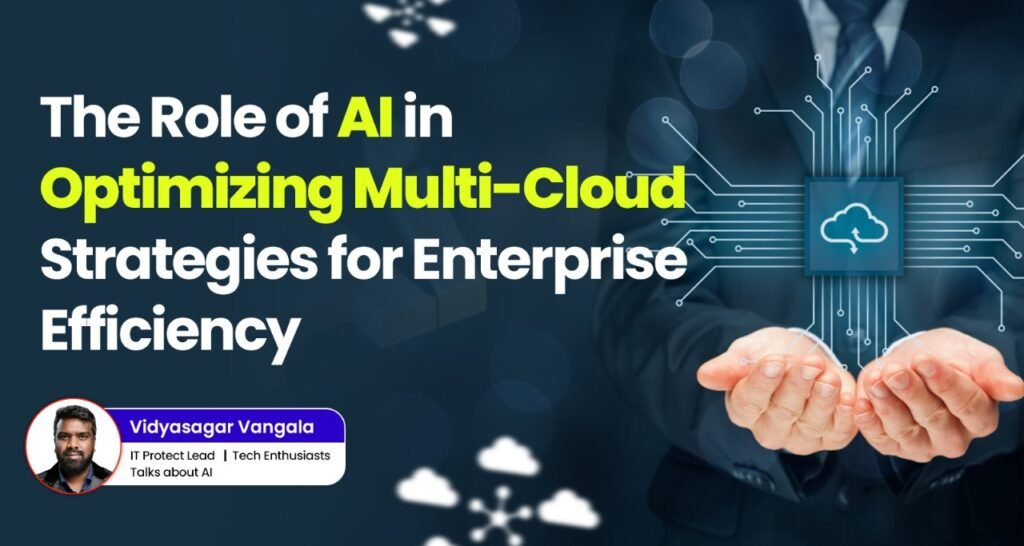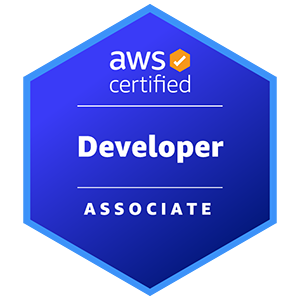
Introduction
As enterprises increasingly adopt multi-cloud strategies to enhance operational flexibility and resilience, the role of Artificial Intelligence (AI) in optimizing these strategies has become paramount. Multi-cloud environments allow organizations to leverage the strengths of various cloud service providers, ensuring that they can meet diverse business needs while avoiding vendor lock-in. However, managing multiple cloud platforms introduces complexity. AI technologies can streamline operations, improve resource allocation, and enhance decision-making processes within multi-cloud architectures. This article explores how AI optimizes multi-cloud strategies, driving enterprise efficiency and innovation.
Understanding Multi-Cloud Strategies
What is Multi-Cloud?
Multi-cloud refers to the use of multiple cloud computing services from different vendors within a single architecture. This approach enables organizations to select the best services tailored to their specific workloads, enhancing performance and cost-effectiveness. For instance, an organization might utilize Amazon Web Services (AWS) for storage solutions while leveraging Google Cloud Platform (GCP) for machine learning applications.
Benefits of Multi-Cloud Strategies
- 1.Flexibility: Organizations can choose the most suitable cloud services for their applications, ensuring optimal performance.
- 2.Cost Optimization: By analyzing pricing models across different providers, businesses can reduce costs by utilizing the most economical services for various workloads.
- 3.Risk Mitigation: Distributing workloads across multiple clouds reduces the risk of downtime or data loss associated with a single provider.
- 4.Enhanced Performance: Organizations can deploy applications closer to end users by selecting geographically diverse cloud providers.
The Role of AI in Optimizing Multi-Cloud Strategies
Automating Resource Management
AI technologies can automate various aspects of resource management in multi-cloud environments. Machine learning algorithms analyze usage patterns and optimize resource allocation dynamically, ensuring that workloads are efficiently distributed across available cloud resources. For example, AI can predict peak usage times and automatically scale resources up or down accordingly.
Predictive Analytics for Cost Management
AI-driven predictive analytics help organizations forecast cloud usage and associated costs more accurately. By analyzing historical data and identifying trends, AI provides insights into future spending patterns, enabling enterprises to budget effectively and avoid unexpected expenses.
Enhanced Security Posture
Security is a significant concern in multi-cloud environments due to the complexity of managing multiple platforms. AI enhances security by monitoring network traffic in real-time and identifying anomalies that may indicate potential threats. Machine learning models trained to recognize patterns associated with security breaches allow organizations to respond proactively.
Improved Compliance Management
Compliance with regulations such as GDPR or HIPAA is crucial for enterprises operating in multiple jurisdictions. AI tools automate compliance checks across different cloud platforms by continuously monitoring data access and usage patterns. This ensures that organizations adhere to regulatory requirements without manual intervention.
Intelligent Workload Placement
AI algorithms analyze workloads based on various factors such as performance requirements, cost considerations, and compliance needs. By intelligently placing workloads on the most suitable cloud platform, organizations can optimize performance while reducing costs.
Current Trends in AI and Multi-Cloud Strategies
Integration of AI with Cloud Services
Major cloud providers are increasingly integrating AI capabilities into their services. For instance, AWS offers tools like Amazon SageMaker for building machine learning models directly within its ecosystem. This trend allows enterprises to leverage AI without needing extensive expertise in data science.
Rise of Hybrid Cloud Solutions
Many organizations are adopting hybrid cloud strategies that combine public and private clouds with multi-cloud approaches. AI plays a crucial role in managing these complex environments by providing insights into performance optimization and resource allocation.
Focus on Sustainability
As organizations become more aware of their environmental impact, many are seeking sustainable cloud solutions. AI helps optimize energy consumption across multi-cloud infrastructures by analyzing usage patterns and recommending energy-efficient practices.
Challenges in Implementing AI in Multi-Cloud Environments
Data Silos
One significant challenge in multi-cloud strategies is data silos created when data is stored across different platforms without proper integration. This fragmentation makes it difficult for AI systems to access comprehensive datasets necessary for accurate analysis.
Integration Complexity
Integrating AI solutions into existing multi-cloud architectures can be complex and may require significant investment in new tools and technologies. Organizations must ensure compatibility between various systems while maintaining security standards.
Skill Gaps
The successful implementation of AI in multi-cloud strategies requires skilled personnel who understand both cloud technologies and artificial intelligence. There is often a shortage of professionals with expertise in these areas, making it challenging for organizations to fully leverage AI capabilities.
Future Outlook for AI in Multi-Cloud Strategies
Increased Automation Capabilities
As AI technologies continue to evolve, we can expect more sophisticated automation capabilities that will further streamline operations within multi-cloud environments. Automation will likely extend beyond resource management to include automated compliance checks and security monitoring.
Greater Focus on Interoperability
As enterprises continue to adopt multi-cloud strategies, there will be an increased focus on interoperability between different cloud platforms. AI will play a crucial role in facilitating seamless integration among diverse systems.
Enhanced Decision-Making Support
Future advancements in AI will provide even greater support for decision-making processes related to cloud resource allocation and workload management. By leveraging advanced analytics, organizations will be able to make more informed decisions that align with their strategic goals.
Conclusion
The integration of Artificial Intelligence into multi-cloud strategies represents a significant advancement in optimizing enterprise efficiency. By automating resource management, enhancing security measures, improving compliance management, and facilitating intelligent workload placement, AI empowers organizations to navigate the complexities of multi-cloud environments effectively.
As businesses continue to embrace digital transformation, leveraging AI will be essential for maximizing the benefits of multi-cloud strategies while addressing associated challenges. Organizations that invest in AI capabilities will not only enhance their operational efficiency but also position themselves as leaders in the competitive landscape.
Vidyasagar Vangala is an accomplished IT Project Lead with 10 + years of IT industry experience with a deep passion for technology and innovation. With extensive expertise in Cloud Technologies, AI Integration, and Automation, Vidyasagar has been at the forefront of driving transformative projects that deliver tangible business outcomes. His robust experience in DevOps engineering, cloud platforms like AWS and Azure, and Kubernetes showcases his ability to lead large-scale cloud migrations, develop AI-powered solutions, and implement advanced automation frameworks.
A strategic thinker and problem solver, Vidyasagar thrives on tackling complex challenges and delivering scalable, efficient solutions. His professional journey reflects a commitment to leveraging cutting-edge tools and methodologies to help organizations achieve agility and operational excellence. Whether it’s streamlining processes through DevOps practices or integrating AI to enhance business decision-making, Vidyasagar’s innovative mindset and leadership have consistently resulted in successful project deliveries.








